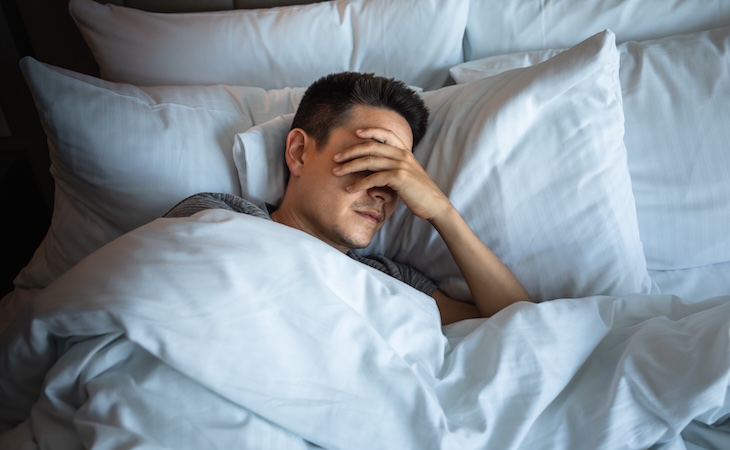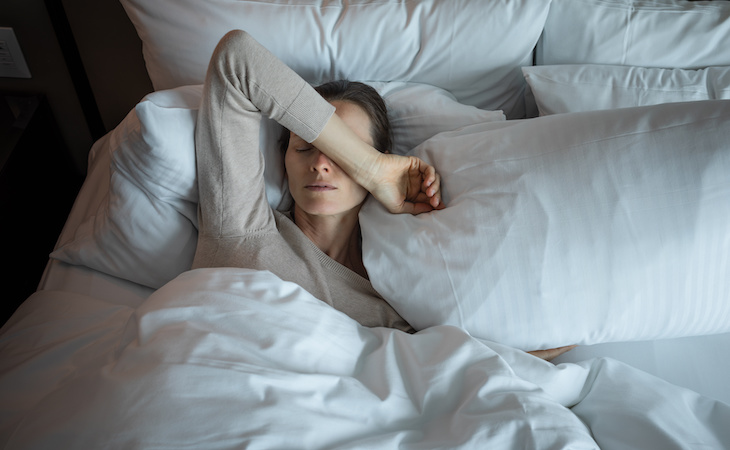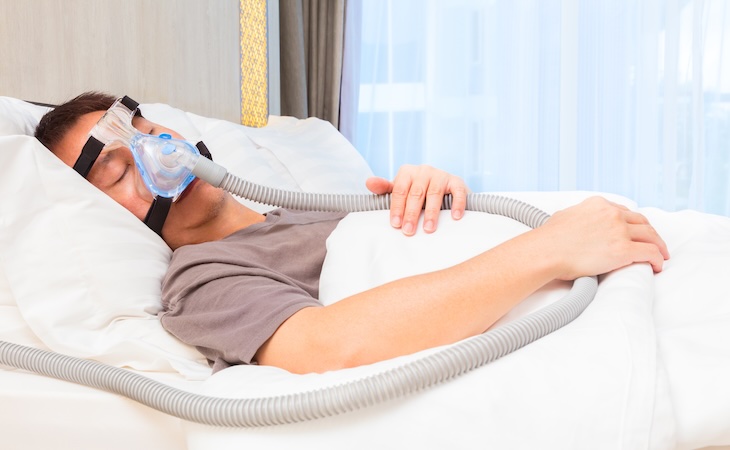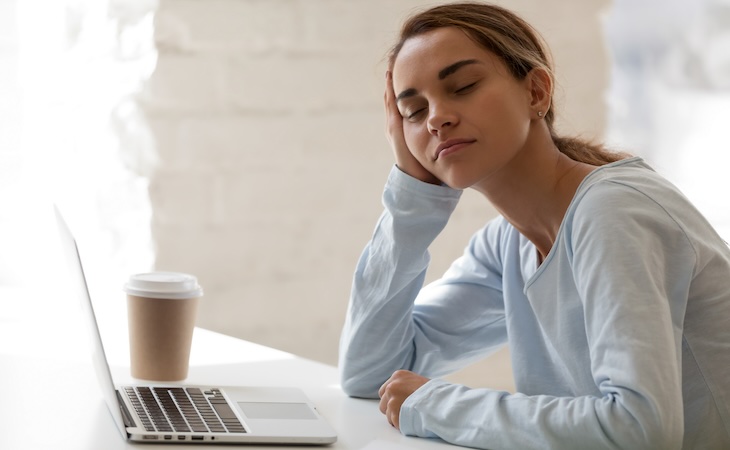The well-documented benefits of sleeping in complete darkness have prompted many to invest in accessories like sleep masks to prevent light from interfering with their quest for a good night’s rest.
But what if darkness gives you the heebie-jeebies? A recent survey conducted by lighting company e-conolight confirmed that nyctophobia, the phobia of darkness, doesn’t only affect children.
Nearly half of the respondents said they disliked or feared the dark, and only 4% identified as enjoying darkness. This fear can be especially challenging at bedtime when our eyelids act as blackout curtains.
In this article, we’ll explore nyctophobia in adults and explain how to address the fear to access a peaceful rest.
What is nyctophobia?
Although it may not feel this way to those who experience it, the Cleveland Clinic defines nyctophobia as an anxiety disorder—or irrational fear—brought on by an extreme fear of the dark.
The phobia causes an individual to feel anxious, panic, and therefore become avoidant of certain situations or environments where lights are dimmed or completely turned off.
Since we must close our eyes in order to sleep, people with nyctophobia have trouble sleeping and often suffer from insomnia. Unlike skipping out on movie theaters or going out at night, skipping sleep altogether isn’t possible. Even interrupted slumber is harmful to our health.
Why am I afraid of the dark?
Nyctophobia doesn’t typically occur from watching a few scary movies or hearing ghost stories by the campfire. Sham Singh, MD, sleep expert and psychiatrist at WINIT Clinic, says the phobia often stems from childhood trauma or a disturbing occurrence in a darkened environment, such as getting lost in the dark or experiencing a night-time burglary in adulthood.
“Evolutionary biology might also contribute to this since our ancestors had more reasons to be afraid of predators in the dark; that’s a partial explanation as to why the fear does not cease to exist,” he says. “In some cases, anxiety disorders or overactive imaginations amplify feelings of danger when one is surrounded by darkness.”
Other causes are genetics or growing up around people who are fearful of the dark.
What triggers nyctophobia?
Winding down from your day, letting go of the day’s stresses, and beginning your nighttime routine should provide a sense of calm and feel restorative. This is often not the case for people who get excessively nervous when we lose light.
There’s no way to control when the sun sets and rises, which can incite anxiety and panic and an overall unsettling feeling for those with nyctophobia. A simple, everyday action can feel terrifying and cause undue panic and fear.
“Walking into a dark room and having to reach for the light switch is super stressful,” says Shebna N. Osanmoh, a board-certified psychiatric nurse practitioner at Savant Care in Santa Barbara, Calif.
Even getting up at night to use the bathroom or checking out weird noises in the dark can be anxiety-inducing.
“Being alone in the dark, especially during power outages or when sleeping alone, triggers these fears,” says Osanmoh. “Some of my patients can’t close their eyes in the shower or walk to their car at night.”
What are the symptoms of nyctophobia?
Those with nyctophobia feel these unpleasant sensations on a daily basis, which can derail their lives.
“They may feel extreme anxiety, have panic attacks, a heightened heart rate, shortness of breath, sweating, shaking, or a sense of dread,” says Raj Dasgupta, MD, chief medical advisor for Sleepopolis. “Others report feeling nauseous or lightheaded, as the body reacts to the fear.”
Additional symptoms include intrusive thoughts and chest tightness.
How to get over your fear of the dark
While there’s no one-size-fits-all approach to overcoming nyctophobia, there are simple strategies you can use to gradually conquer your fear of darkness to start sleeping better.
Using a calming app to slow and deepen your breathing, practice progressive muscle relaxation (tensing and releasing muscle groups), or listen to guided imagery can intercept a panic attack and teach your body how to relax and feel safe before bed.
Many professionals suggest cognitive behavioral therapy to unearth the root cause of the fear and learn coping tools to manage it. Singh says this strategy is highly effective because it changes how individuals think about the dark and confront irrational fears.
He also recommends temporary medication for extreme cases while exploring the phobia in therapy sessions.
How to sleep better when you’re afraid of the dark
Beyond breathing techniques and guided imagery, soothing music or white, pink, brown, or green noise can help a person with nyctophobia feel comfortable in their darkened surroundings.
Making your bedroom a peaceful oasis by reducing clutter, choosing peaceful colors for your bedding and walls, and introducing aromatherapy by using an oil diffuser can help soothe your nerves.
Surrounding yourself with grounding or cozy items, like a cozy blanket or a stuffed animal, may also be helpful. Talking to a supportive friend before bed is another way to relax before closing your eyes.
FAQs
Why do I have an intense fear of the dark?
You may have developed the phobia from a traumatic event that occurred in the dark or have been exposed to someone who has already experienced it. Also, some people are more prone to feeling unsafe in darkened spaces.
Is nyctophobia permanent?
Thankfully, no. There are many treatments for phobias like nyctophobia, such as mindful breathing or tensing and relaxing your muscles. Others may benefit from therapy or medication.
How can I stop being afraid of the dark?
While there’s no overnight cure, consistently exposing yourself to brief periods of darkness with a trusted person or a light handy can help you overcome it. “Remember, progress takes time,” says Osanmoh. “Focus on one small win at a time, like walking to the bathroom at night or sleeping with less light.”
Are you afraid of falling asleep? Next, learn all about somniphobia and how to treat it.




